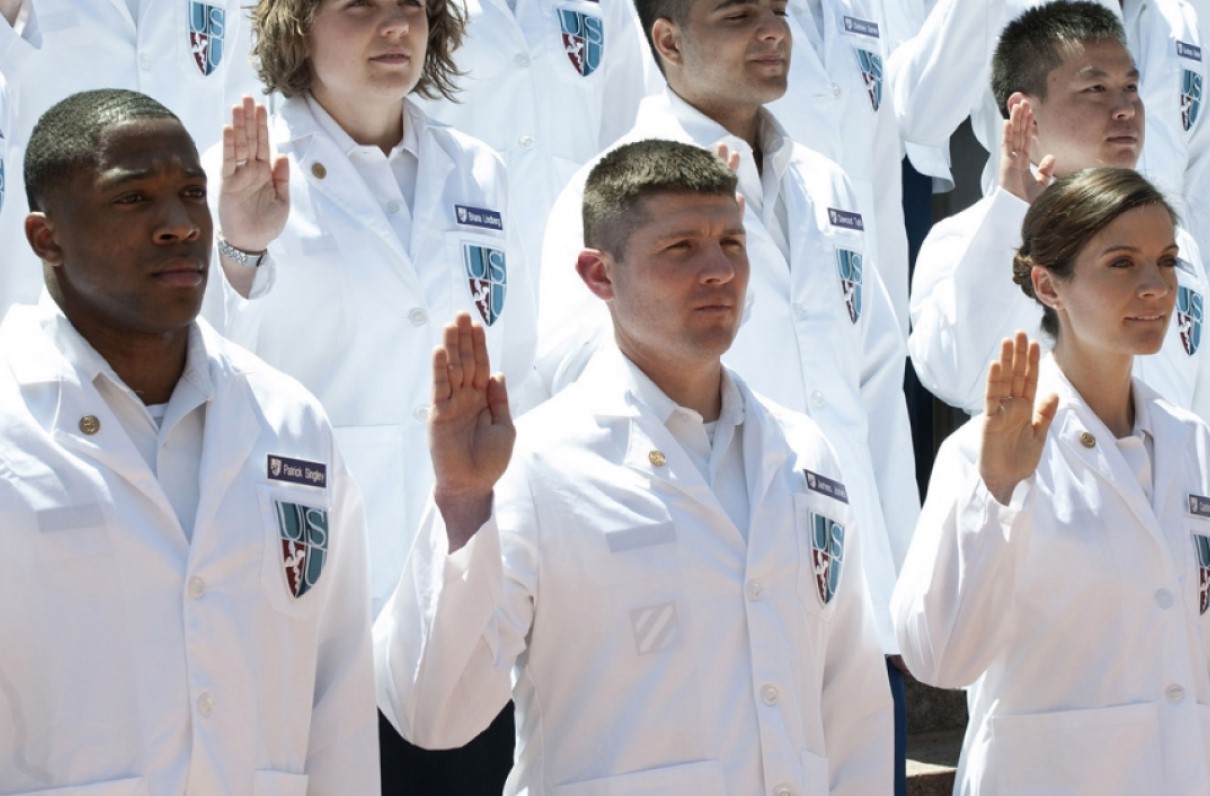The Military Coalition (TMC), a group of military and veterans service organizations representing a combined 5.5 million-plus membership, urged committee leaders in the House and Senate to restore funding to the Uniformed Services University of the Health Sciences (USU), the single largest accession source to military medicine.
“Adequate funding is essential to maintaining a world-class university that attracts high-caliber faculty and students,” said the Aug. 24 letter, sent to House and Senate Armed Services Committee and Defense Appropriations Committee leadership. MOAA is a co-chair of the 35-member TMC.
The letter highlighted USU’s essential role in filling the uniformed medical provider pipeline. USU physician graduates on active duty totaled 3,157 in 2018 – more than the next 20 Health Professions Scholarship Program (HPSP) schools combined. DoD has been unable to fill all available HPSP slots in recent years, further emphasizing the importance of USU to the provider pipeline.
[TAKE ACTION: MOAA’s Summer Storm 2020]
Those graduates serve longer on active duty than their HPSP counterparts (15 years, compared with nine years), according to a 2019 study by the Institute for Defense Analyses. They also deploy an average of 731 days, compared with 266 days for HPSP grads, and have higher representation in special operations units (180% higher in the Army).
USU’s Graduate School of Nursing offers both Masters of Nursing and Doctor of Nursing Practice degree options for advanced practice nurses. USU also has graduate programs in biomedical sciences and public health as well as a Postgraduate Dental College.
“Adequate funding is essential to maintaining a world-class university that attracts high-caliber faculty and students,” the letter states. “If USU budget cuts are not reversed, many critical programs that contribute to the university’s leadership role in military medicine and address needs specific to the military community face elimination or drastic cuts.”
Among those programs: The Center for the Study of Traumatic Stress, Center for Deployment Psychology, Department of Defense Medical Ethics Center, National Center for Disaster Medicine and Public Health, and In-House Laboratory Independent Research (ILIR).
“USU graduates are critical to DoD’s ability to provide medical support for servicemembers during wartime,” the letter states. “They are not only essential for readiness, but they also serve as a valuable source of culturally competent beneficiary care for retirees, family members, and survivors.”
As DoD and the Military Health System continue to assess how they can most effectively align assets in support of the National Defense Strategy, MOAA and TMC will continue to monitor and fight threats to the USU budget.
Support The MOAA Foundation
Donate to help address emerging needs among currently serving and former uniformed servicemembers, retirees, and their families.

